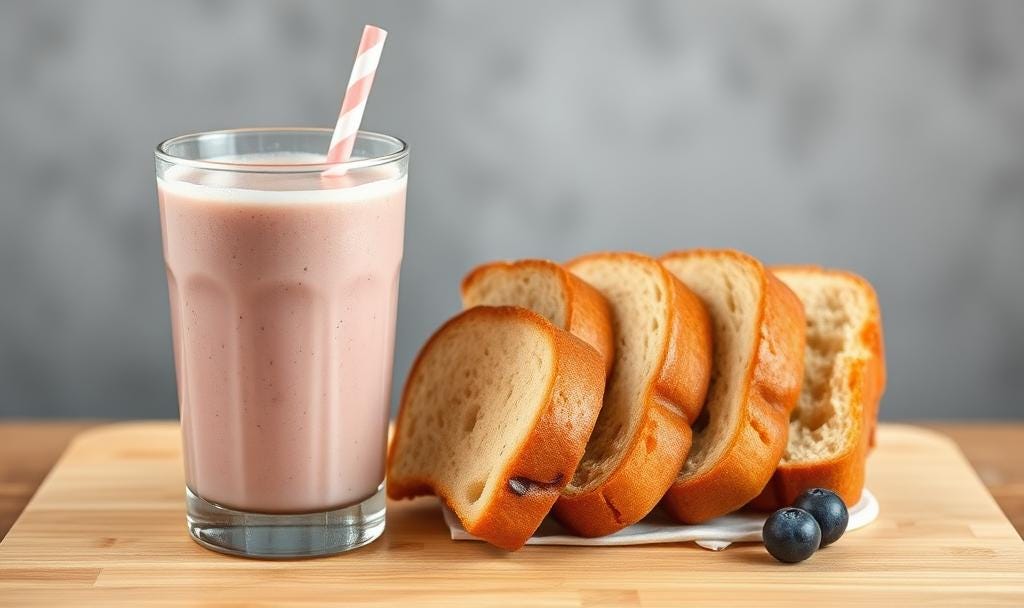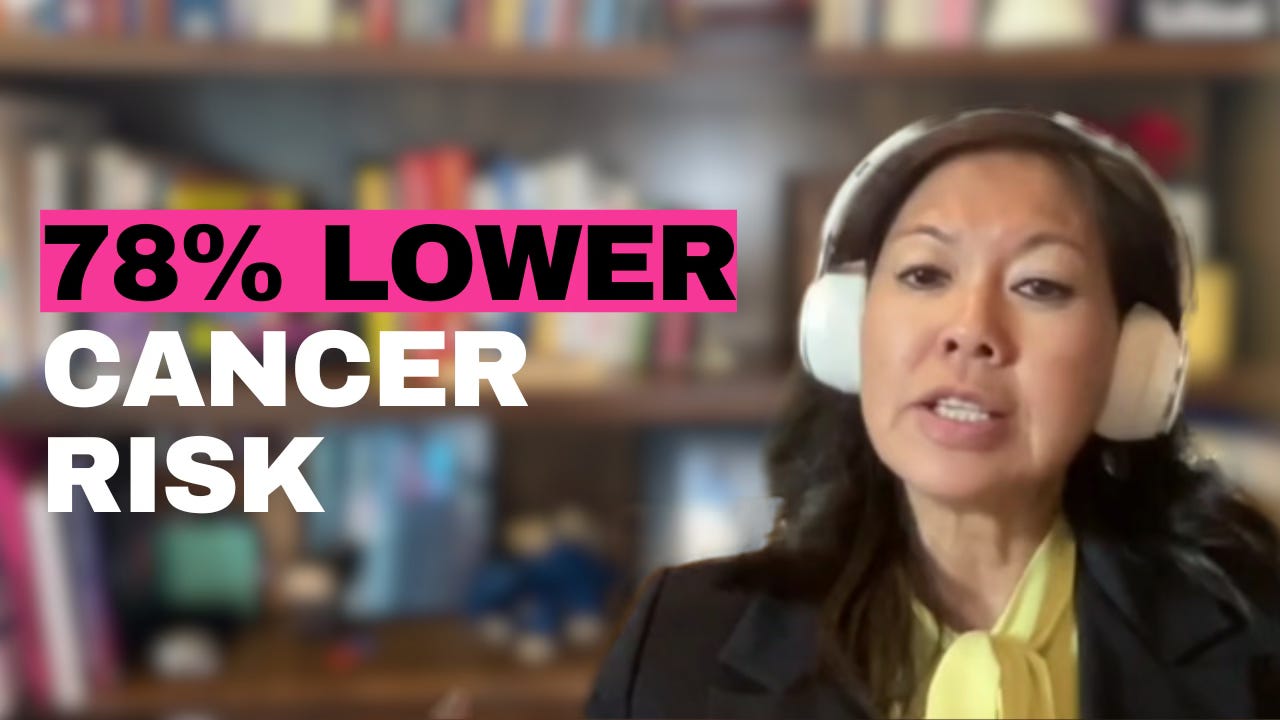How to Cut Your Cancer Risk by 78% Naturally
Dr. Hormone Hacker shares her secrets
The lab results came back showing Sarah was this close to pre-diabetes. As an endocrinologist, Dr. Mary Ann Martin knew exactly what that meant - not just for Sarah's immediate health, but for her cancer risk. What happened next changed everything about how Dr. Martin practices medicine.
Most doctors would have written a prescription. Dr. Martin asked Sarah to put on a continuous glucose monitor instead.
"I want you to eat exactly what you normally eat," she told her patient. "But I want you to see what those foods are actually doing to your body."
Three days later, Sarah called, panicked. "Doctor, my blood sugar spiked to 180 after I had my morning smoothie. The one I thought was healthy."
That smoothie contained 70 grams of sugar - equivalent to eating five pieces of bread.
Dr. Martin has spent years watching patients like Sarah discover that much of what we consider "healthy" is actually driving inflammation in our bodies. And inflammation, she explains, isn't just about something being red and swollen. When you're chronically sleep-deprived, eating processed foods, or living under constant stress, your cells go into fight-or-flight mode. That state of high alert is inflammation.
"Most people with cancer actually have insulin resistance," Dr. Mary Ann Martin shared, "When insulin is high, it actually causes tumor growth."
Dr. Martin has seen the research showing that when you stack just four lifestyle interventions - nutrition, exercise, stress management, and sleep - you reduce your risk of chronic disease by 78%.
Not 7%. Not 17%. Seventy-eight percent.
The nutrition piece starts simple: avoid anything that comes in a bag or can. Focus on preparing food yourself. Switch to healthier oils like olive or avocado oil. "The best example is a Mediterranean diet," she explains. "People in the Blue Zones eat lots of seafood, vegetables, whole grains, lentils, and beans. But they're also hiking hills every day and spending time outdoors instead of staring at screens."
Then comes the movement - 30 minutes, five days a week minimum. Dr. Martin doesn't believe in rest days. "Why should there be a day where we do nothing? We can walk, stretch, and do yoga. Make it as automatic as brushing your teeth."
Add proper sleep (in bed by 11 PM, same time every night, even weekends) and stress management, and you've created what Dr. Martin calls a "lifestyle stack" that dramatically reduces cancer risk.
Dr. Martin's own family history of diabetes drove her to test these principles on herself. When her A1C came back at 5.6 - one-tenth of a point away from pre-diabetes - she became her own patient.
What if the most powerful cancer prevention tool isn't found in a pharmacy, but in how we choose to live each day?
Links:



